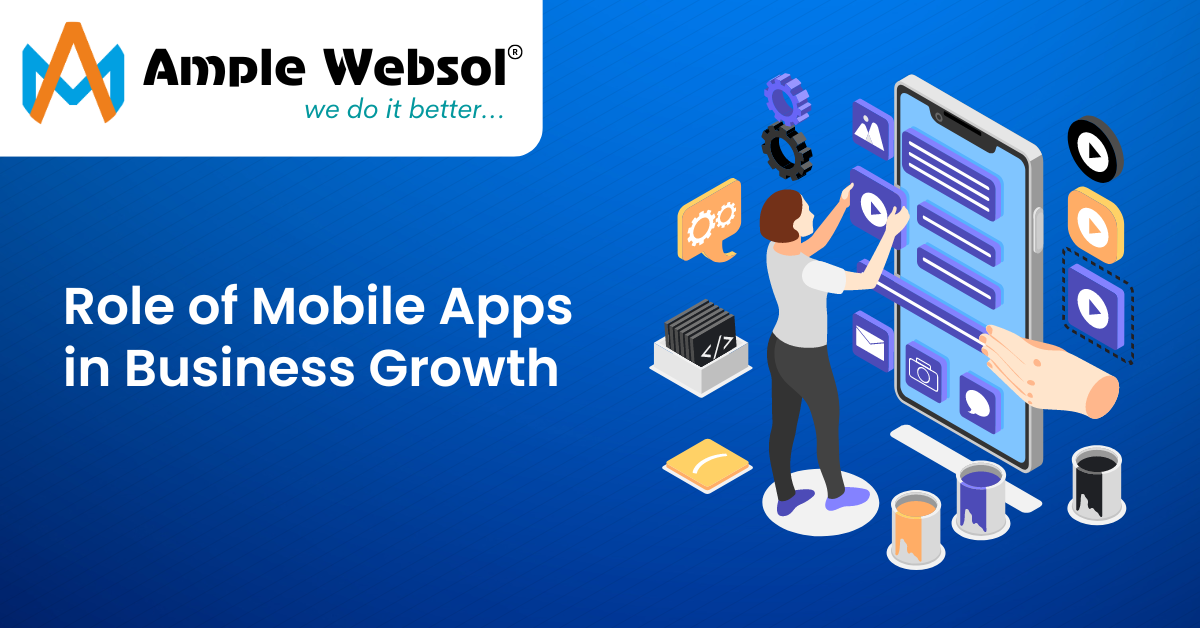The Advantages of Custom Mobile Application Development In today's digital age, mobile applications have become…

Trends Shaping the Future of Mobile App Development
Trends Shaping the Future of Mobile App Development
The mobile app development industry has witnessed unprecedented growth and innovation over the years, transforming the way we interact with technology. As we move into the future, new trends continue to emerge, revolutionizing the mobile app landscape.
In this blog, we will explore the key trends shaping the future of mobile app development and their potential impact on businesses and users alike.
Augmented Reality (AR) and Virtual Reality (VR) Integration: Augmented reality and virtual reality have gained significant momentum in recent years, and their integration into mobile apps is becoming increasingly prevalent. AR enhances the user experience by overlaying digital elements onto the real world, while VR offers immersive, simulated environments. As app developers harness the power of AR and VR, we can expect a surge in interactive and engaging mobile experiences across various industries, including gaming, education, and e-commerce.
Internet of Things (IoT) Integration: The Internet of Things has paved the way for a more connected world, and mobile apps play a crucial role in its expansion. As IoT devices become more widespread, mobile apps will act as central hubs to control and monitor these smart devices. From home automation to healthcare, IoT integration in mobile apps will streamline daily tasks, enhance convenience, and improve efficiency in various sectors.
5G Network Adoption: With the rollout of 5G networks, mobile app developers can unlock new possibilities for speed and performance. The increased bandwidth and reduced latency offered by 5G will lead to smoother, more responsive app experiences. This trend will facilitate the development of feature-rich applications, including real-time gaming, video streaming, and high-quality video conferencing.
Artificial Intelligence (AI) and Machine Learning (ML) Integration: AI and ML technologies are reshaping the mobile app landscape by enabling personalized user experiences, smart automation, and predictive capabilities. Mobile apps are leveraging AI-powered chatbots, recommendation engines, and voice assistants to enhance user engagement and customer support. As AI continues to advance, mobile apps will become more intuitive and adaptive to individual user preferences.
Progressive Web Apps (PWAs): Progressive Web Apps are gaining traction due to their ability to combine the best aspects of websites and mobile apps. PWAs offer seamless offline functionality, quick loading times, and cross-platform compatibility, making them an attractive choice for businesses seeking broader audience reach and enhanced user experiences without the need for app store downloads.
Enhanced App Security and Privacy: With increasing concerns about data privacy and cybersecurity, app developers are prioritizing robust security measures in mobile app development. Biometric authentication, data encryption, and secure APIs are becoming standard practices to protect user data and build trust among app users.
Conclusion:
As technology continues to evolve, the future of mobile app development looks promising, with exciting trends shaping the industry. From augmented reality and IoT integration to 5G network capabilities and AI-powered experiences, mobile apps are set to deliver even more value, convenience, and engagement to users. Businesses that embrace these trends and leverage the latest innovations in their mobile app development strategies will gain a competitive edge and better meet the evolving needs of their target audience. As the mobile app development industry continues to evolve, we eagerly anticipate the transformative possibilities these trends will bring to the way we interact with mobile technology in the coming years.
Explore our Services!
Website Development Company in Vadodara, Digital Marketing Company in Vadodara, SEO Company in Vadodara, Google Ads Expert in Vadodara, Hire the Best Facebook Ads Specialist in Vadodara, E-Commerce Development Company in Vadodara, UI/UX Design & Development Service in Vadodara, Web Application Development Services in Vadodara, Mobile Application Development Services, Social Media Marketing Agency in Vadodara, Best Email Marketing Services in Vadodara


